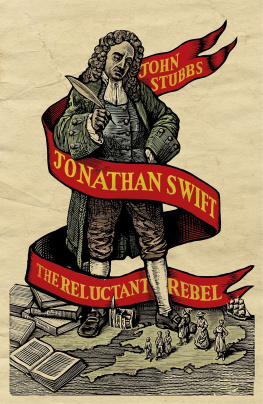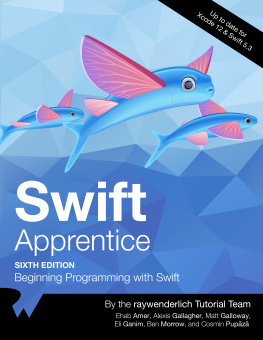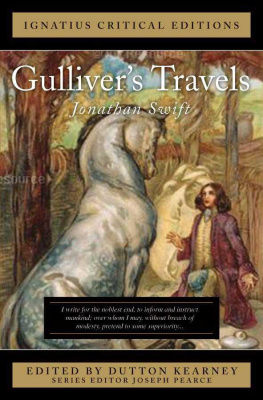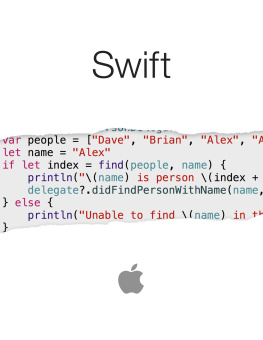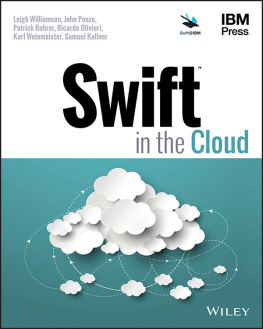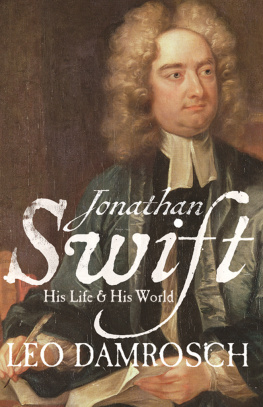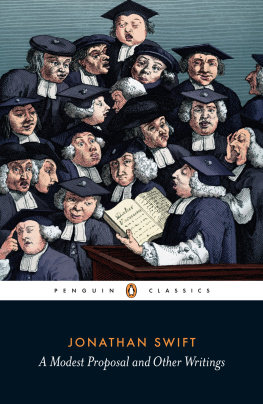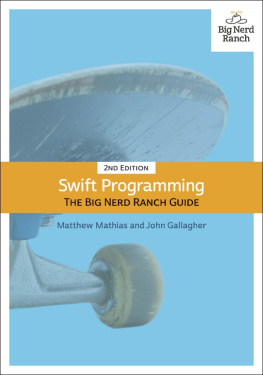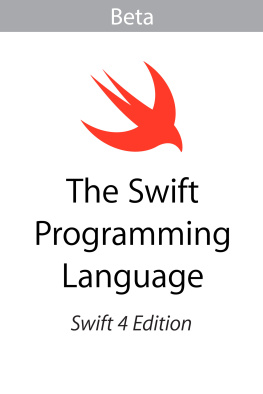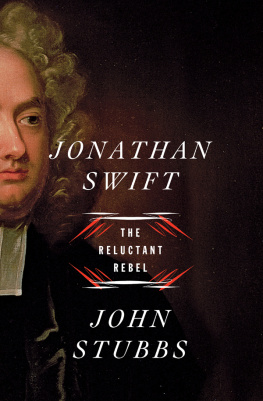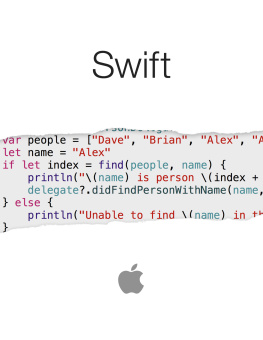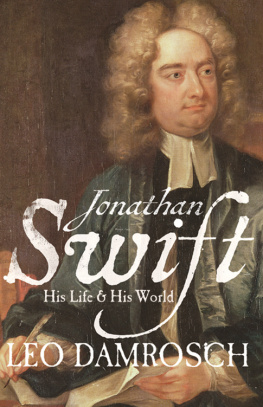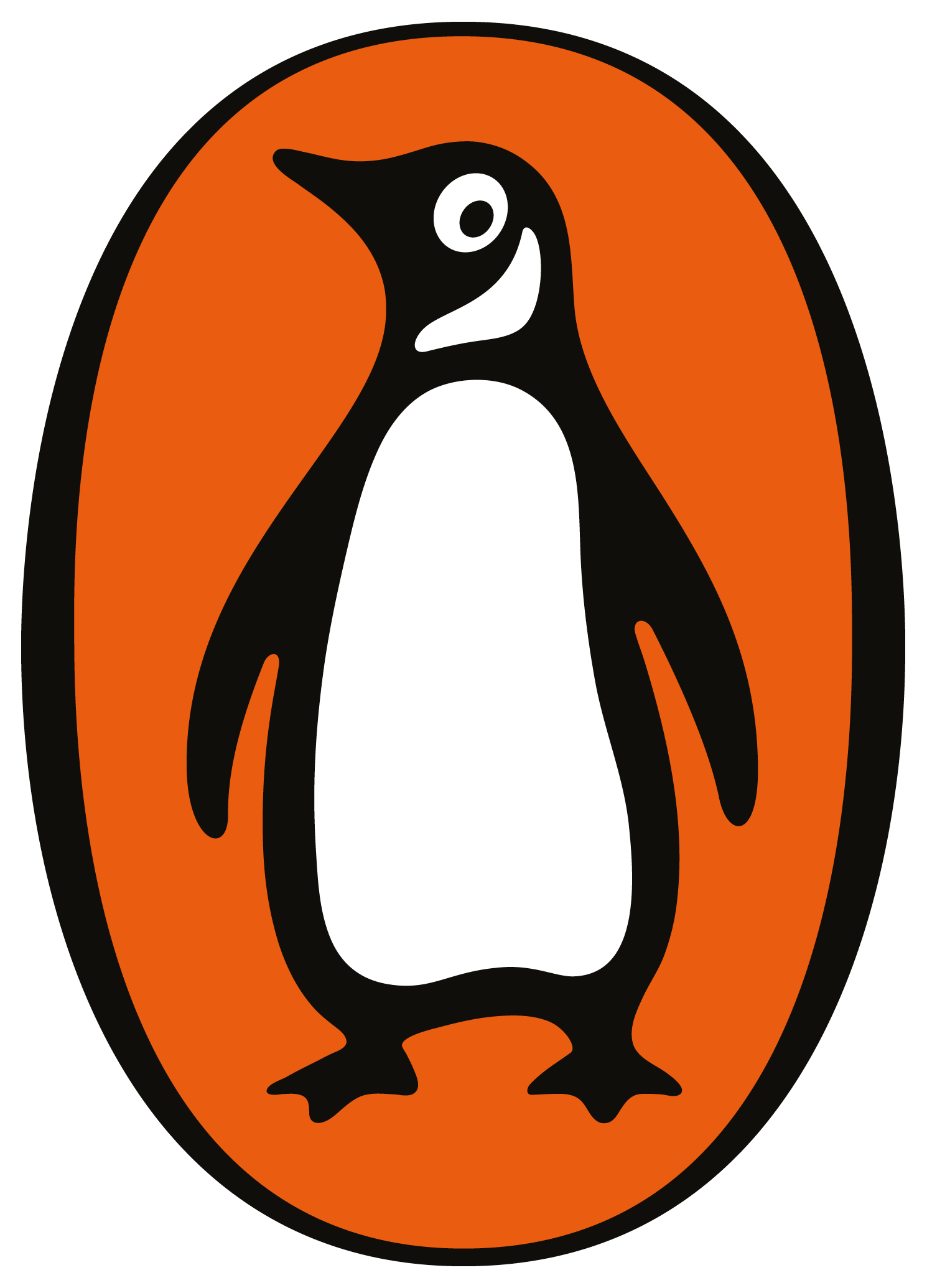Contents
John Stubbs
JONATHAN SWIFT
The Reluctant Rebel
Abbreviations
| Deane Swift, Essay | Deane Swift, An Essay upon the Life, Writings, and Character of Dr Jonathan Swift (1755) |
| DNB | Oxford Dictionary of National Biography, updated online edition |
| Ehrenpreis | Irvin Ehrenpreis, Swift: The Man, His Works, and the Age, 3 vols. (196283) |
| Gilbert, History of Dublin | Sir John Gilbert, A History of the City of Dublin, 3 vols. (Dublin, 1859) |
| Swift, Correspondence | The Correspondence of Jonathan Swift, ed. Sir Harold Williams, rev. David Woolley, 5 vols. (Oxford, 196572) |
| Swift, Journal | Journal to Stella, ed. Harold Williams, 2 vols. (Oxford, 1948) |
| Swift, Poems | The Poems of Jonathan Swift, ed. Sir Harold Williams, 2nd edn, 3 vols. (Oxford, 1958) |
| Swift, PW | The Prose Works of Jonathan Swift, eds. Herbert Davis et al., 16 vols. (Oxford, 193974) |
| Swift, Tale of a Tub | A Tale of a Tub, eds. A. C. Guthkelch and David Nichol Smith, 2nd edn (Oxford, 1958) |
| Swift, Travels | Gullivers Travels, eds. Ian Higgins, Claude Rawson and Paul Turner (Oxford, 2005) |
Acknowledgements
I would like to thank Mary Mount, my wonderful editor at Viking, who first suggested Swift as a subject almost ten years ago, and Toby Eady, my literary agent, friend and mentor. The project could not have gone ahead without the intervention of Jill Bialosky at Norton. Im very thankful to her for her trust and great goodwill. In the closing stages I became profoundly grateful to Donna Poppy for the incredible care with which she checked facts and quotations and copy-edited the text, for the fog-dispelling human sense she used to challenge some of my interpretations and for the learning and wit she brought to the whole process. It goes without saying that all remaining errors, inaccuracies and shortcomings are entirely mine. My thanks as well to all at Penguin and Norton who helped see the book into print, especially Isabel Wall and Keith Taylor. The index was prepared by Douglas Matthews.
Ive been helped by members of staff, and often fellow visitors and readers, at many libraries, museums and monuments around Britain and Ireland at more obvious ports of call such as Cambridge University Library, the British Museum and the Victoria and Albert Museum, but also in local libraries, archives, manor houses and churches. More often than not, these were fleeting encounters, but insight can often survive even a moment of awkwardness as with one elderly gentleman who struck up a conversation one day in the Cambridge UL, and kindly told me a great deal about engraving in the early 1700s. However he stalked off, understandably peeved, when we established that I was not, as hed thought, a librarian, and so couldnt aid his search for one particular framed print.
As with all studies of Swift written today, this one is hugely indebted to the scholarship of three centuries, in particular to the lifetimes of work by Francis Elrington Ball, Herbert Davis, Louis A. Landa, Pat Rogers and Sir Harold Williams, David Woolley, among Swifts foremost editors, and to the biographical research of John Forster, Sir Henry Craik and, perhaps above all, Irvin Ehrenpreis. Victoria Glendinnings beautiful Portrait of Swift is superlative in dealing with among other things the personalities of Vanessa and Stella. Leo Damroschs recent biography brought out Swifts urbanity and underlying gentleness, and offered a stimulating challenge to many of Ehrenpreiss findings and assertions: I only regret that my attempt to write about Swift was at such a late stage when I read Professor Damroschs book. By the same principle Ehrenpreiss account of Swifts life and work will always need balancing against those of Louise Barnett, Pat Rogers, Ian Higgins, David Nokes, Clive Probyn, Ricardo Quintana and Claude Rawson, to name just a few of the most illuminating and illustrious of Swiftians. All these writers and many others have guided me, and I hope my notes and suggestions for further reading do at least some justice to the debt I owe them. I have tended to use the texts of Davis and Williams as standard reference points for readers seeking to consult specific passages, for the simple reason that their volumes still seem to be the most widely available, and the lasting value of the scholarship behind them is surely indisputable. This is by no means to deny, though, how the work of these editors has been enriched and refined by, for example, the experts preparing the ongoing new Cambridge edition of Swifts works or by Woolleys new volumes of the letters. New editions of the poems, of the Travels and A Tale of a Tub continue to reflect the changing constitution of Swifts readership, and journals abound with more insights than a single life would probably be long enough to synthesize. More is understood now about the spectrum of Aspergers syndrome, elements of which Swifts personality seems to have displayed. A vast amount of work has been done on Swifts neglected women contemporaries, on early-modern society, politics and landscape; a new edition of the Oxford Dictionary of National Biography has enhanced the detail on famous and much lesser-known figures in Swifts lifetime. These sources and more have directed my steps at every turn.
As always, I felt the constant influence of excellent teachers. Many problems were eased by comments remembered from tutorials with John Fuller, Susan Hitch, David Norbrook and Frank Romany. I approached Swift via the late Tudor and earlier Stuart periods, and have thus felt the advantage throughout of being supervised and advised as a postgraduate student by Gavin Alexander, Colin Burrow and John Kerrigan. I was also guided by conversations on aspects of Swifts period, some many years ago, with Christopher Burlinson, David Colclough, Freya Johnston, Richard Lodge, Raphael Lyne and Nick Seddon. I was extremely lucky to meet William Ian Miller and to hear him discuss Swift in a lecture on his book TheAnatomy of Disgust, here in Ljubljana; this really broadened my view of the social and psychological aspects of the Deans approach to revulsion. On techniques of writing biography and history, I learned a great deal in a very short time some years ago through talks with Anna Beer, Dominic Hibberd, Simon Schama and John Worthen. Going right back, I must also say that the understanding of British history I gained from David Dunton and Alan Monger, my two A-level teachers, established by their humour, learning and practicality, is still foundational for me.
Many friends have tolerantly listened to or read through stories and arguments from the book, discussed Swifts character, work and time with me and contributed either their specialist knowledge or common sense or both: I send my thanks to Matej Accetto, Noah Charney, Oliver Currie, Joica Demar, Matja Jager, Iggy McGovern, Richard Major, Miran Moina, Ale Novak, Dan OBrien, Martina Obot, Miha Pintari, Renata Salecl and Katja krubej.

